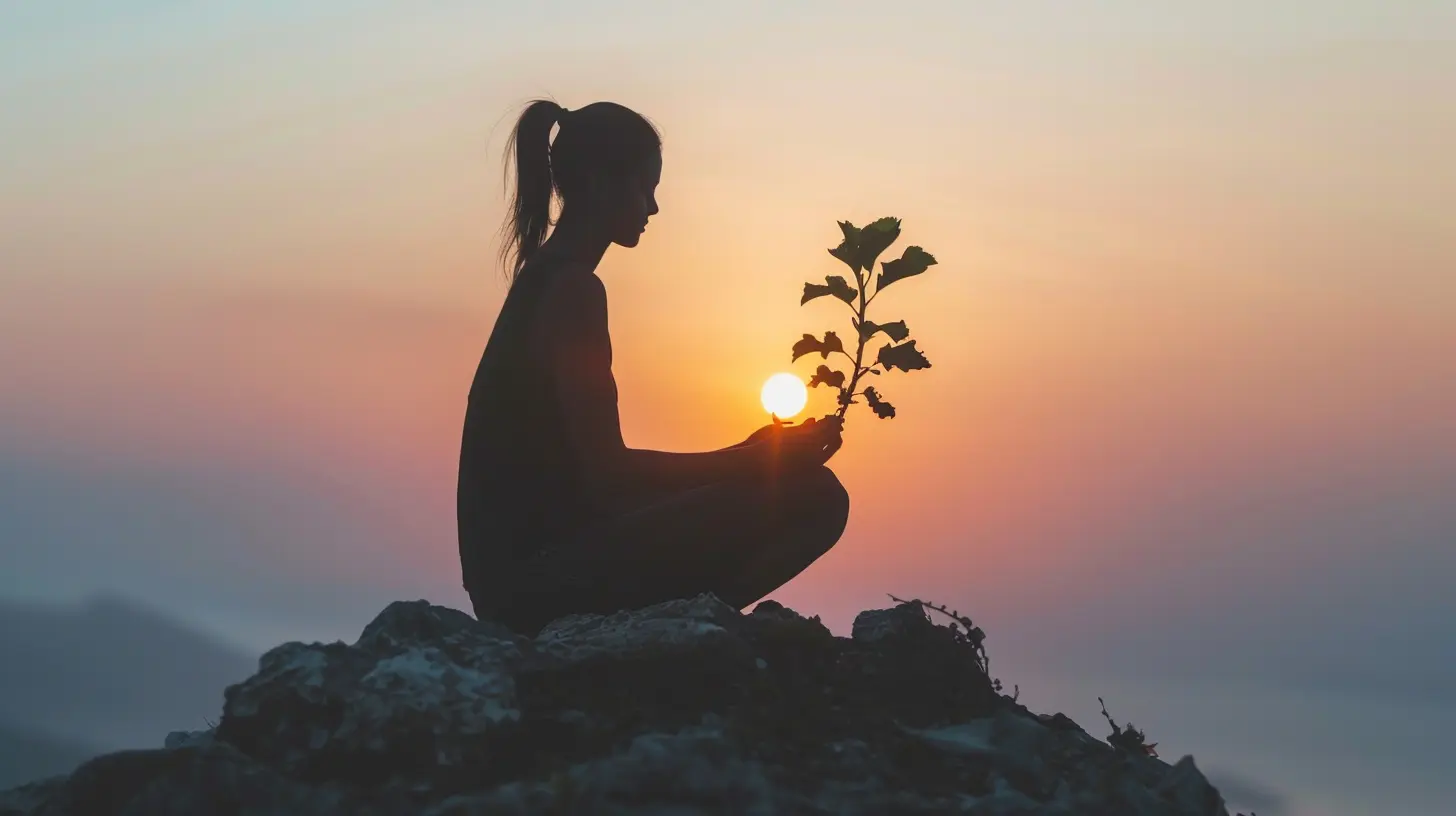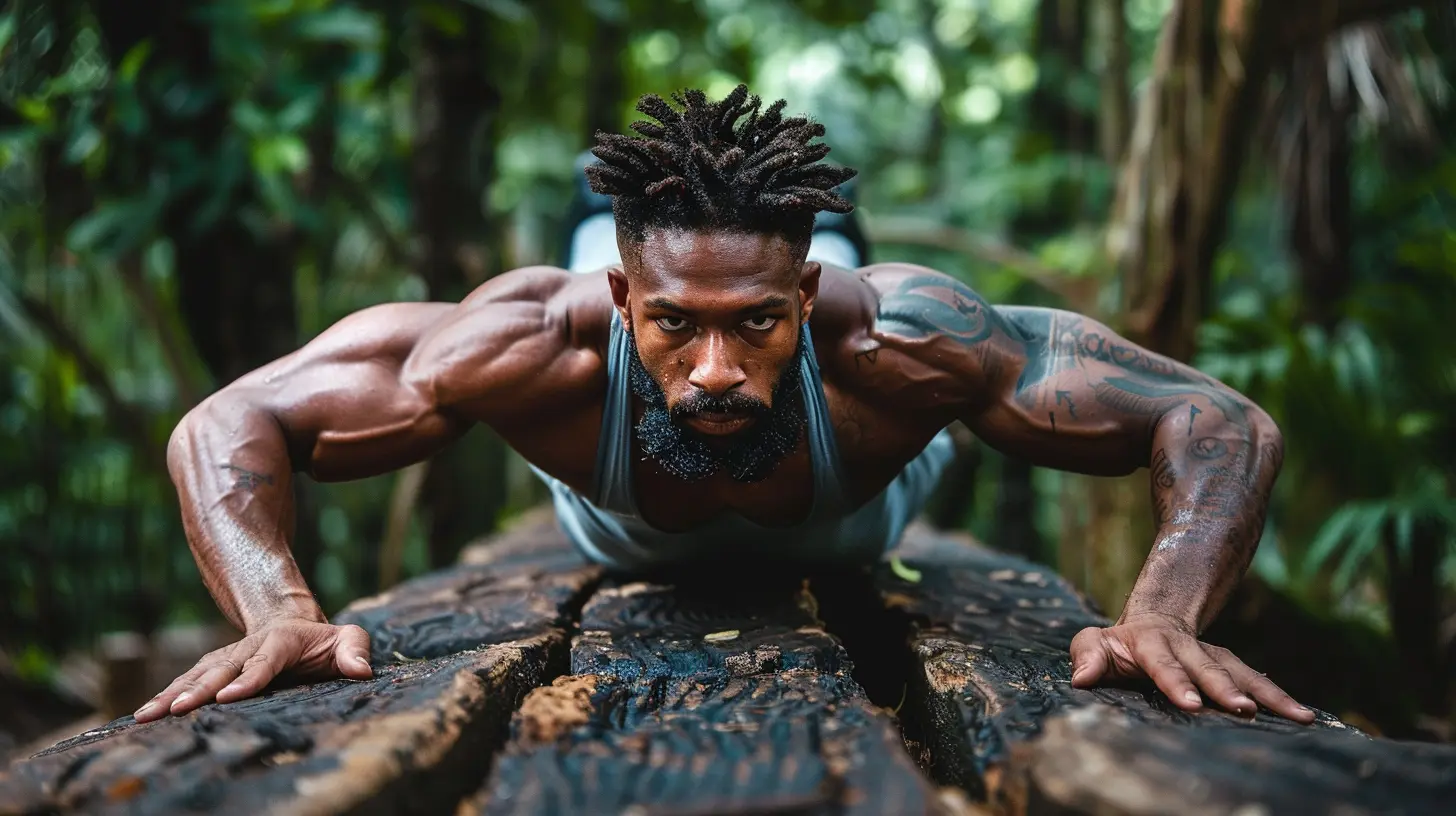Building Daily Rituals That Promote Mental and Physical Strength
9 November 2025
Life gets overwhelming, right? Juggling work, relationships, health, and a to-do list that never seems to end can leave you mentally drained and physically sluggish. The good news? You don’t need a major life overhaul to feel better. Small, consistent actions—aka daily rituals—can totally transform your mental clarity and physical strength.
But here's the kicker: it's not about doing a million things. It's about doing the right things—daily habits that work for your unique lifestyle, promote energy, balance your emotions, and build long-term resilience.
Let’s get into it. In this article, we’re talking about how to create powerful daily rituals that boost both your body and mind—without adding extra stress.
Why Daily Rituals Matter More Than You Think
You’ve heard it before: "Consistency is key." But why?Because our brains love patterns.
Think of daily rituals like mental programming for success. They cut down on decision fatigue (that exhausting feeling when you’ve made too many choices in a day) and create structure amidst chaos. Over time, these small behaviors become automated and impactful.
And it doesn’t stop there. Daily rituals strengthen your identity. If you stretch every morning, eventually you’ll see yourself as someone who values flexibility and movement. That’s powerful.
The Mind-Body Connection: Why You Can’t Focus on One Without the Other
Let’s be clear—mental and physical strength are not separate. They're deeply connected.When your body feels strong, your brain gets a boost of endorphins, dopamine, and serotonin. It’s like nature’s own “feel-good smoothie.” And when you’re mentally clear and calm, you’re more likely to make choices that support your body—like eating healthy, exercising, and getting proper sleep.
So rather than treating mental and physical health separately, your rituals should hit both.
👉 Kill two birds with one routine, as they say.
Pillars of Powerful Daily Rituals
Before we dive into specific rituals, let’s look at the foundation. The most effective ones check at least one of these boxes:- Enhances energy (physical or mental)
- Promotes emotional balance
- Supports consistent self-discipline
- Builds resilience
- Fosters presence and mindfulness
Now let's break them down with practical, real-world examples.
1. Start Your Day Intentionally—Not Reactively
Most people begin their day with a scroll-fest: email, Instagram, news. And suddenly, your brain is flooded with negativity, comparison, and to-do list anxiety… before you’ve even brushed your teeth.Let’s fix that.
✅ Morning Rituals for Strengthening Your Mind and Body
1. Hydration First Thing:Your body loses water overnight. Rehydrating helps wake up your organs, flushes out toxins, and kickstarts metabolism.
2. Movement (Even If It’s Just 5 Minutes):
A short walk, yoga, or bodyweight exercises in the morning gets your blood flowing. You’ll feel more awake, alert, and grounded.
3. Mindfulness Practice:
This can be meditation, journaling, breathwork, or simply sipping your coffee in silence. The point is to own your mind before the world does.
4. Visualize Your Day:
Athletes visualize success before stepping into the arena. Do the same. Picture your day going well—meetings, workouts, conversations.
These aren't long tasks. We're talking 15 to 30 minutes total. But they anchor you for the day.
2. Rituals That Build Physical Strength (Without Burning Out)
You don’t need to live in the gym to get strong.What you need are habits that support your body daily—even on the busiest days.
✅ Midday Rituals to Boost Physical Vitality
1. Walk Breaks:Set a timer every hour to stand up, stretch, or take a stroll. Sitting too long wrecks your posture, tightens your hips, and slows your metabolism.
2. Eat Consciously:
Avoid eating in front of screens. Take time to chew, breathe, and notice how food makes you feel. Mindful eating = better digestion and energy levels.
3. 5-Minute Mobility Sessions:
Rolling your shoulders, doing some cat-cow stretches, or foam rolling can relieve long-day stiffness. You’ll feel more fluid and less achy.
4. Afternoon Reset (Optional Nap or Meditation):
A 10-20 minute nap or a guided meditation can recharge your battery better than a third cup of coffee.
You don’t have to be perfect. What matters is doing something to tell your body: “Hey, I care about you.”
3. Mental Toughness Isn’t Built in Crisis—It’s Built in Routine
Mental strength isn’t about never being stressed. It’s about bouncing back quickly. That resilience is forged daily—through repetition, not random motivation.✅ Mental Strengthening Night Rituals
1. Reflect Without Judgment:Before bed, ask:
- What went well today?
- What didn’t?
- What will I improve tomorrow?
You’re not beating yourself up—you’re learning like an athlete after a game.
2. Digital Detox (Minimum 30 Minutes Before Bed):
Blue light zaps your melatonin and feeds your brain stimulation that keeps you anxious. Trade the screen for a book, light music, or old-school journaling.
3. Gratitude Rituals:
Write down 3 things you’re thankful for. It shifts your perspective, reduces stress, and improves sleep quality.
4. Breathwork or Stretching Routine Before Bed:
Deep breathing, box breathing, or a few yin yoga poses help your nervous system shift into rest mode. It's like tucking your brain in.
4. Rituals for Emotional Strength
Let’s not forget emotion. If your nervous system is always in “fight or flight,” your immune system suffers, your focus scatters, and your body breaks down.Emotional strength is about building self-trust, emotional regulation, and the ability to pause before reacting.
✅ Daily Emotional Wellness Practices
1. Journaling for Clarity:Not a writer? Doesn’t matter. Just jot thoughts. Let your mind empty out. It clears the emotional clutter.
2. Set Boundaries Like a Boss:
Say no when you mean no. Your energy is precious. People-pleasing slowly robs you of strength.
3. Connect Authentically:
Even a 2-minute deep convo with a friend or family member beats hours of surface-level interactions. Humans thrive on connection—not just contact.
Making These Rituals Stick: The Habit-Stacking Trick
Starting new habits is hard… unless you piggyback them onto something you already do.It’s called habit stacking, and it’s a game-changer.
Here’s how it works:
- After I brush my teeth → I’ll journal for 2 minutes.
- After I make coffee → I’ll do 10 push-ups.
- After I sit down at my desk → I’ll take 3 deep breaths.
See what’s happening here? You’re anchoring a new habit to an old one. Your brain doesn’t see it as “extra effort”—just an extension of what you're already doing.
Personalize It: One Size Doesn’t Fit All
Here’s the truth: The “perfect morning routine” doesn’t exist. What works for someone else may not work for you—and that’s OK.The goal isn’t to copy someone’s ritual. It’s to create yours—something sustainable, meaningful, and energizing.
Ask yourself:
- When do I feel most clear and strong during the day?
- Which habits drain me, and which ones fuel me?
- What’s the minimum version of a ritual I can start with?
Start small. Stay flexible. And focus on consistency, not intensity.
Tools to Keep You On Track
There’s no shame in using tech to help you stay consistent. Here are some simple tools:- Habit Trackers – Apps like Habitica, Streaks, or a bullet journal.
- Timers & Alarms – Set reminders to move, breathe, or reflect.
- Accountability Buddies – Find a friend or coworker to check in with.
- Check-in Rituals – Sunday night review sessions to tweak your habits.
Remember, rituals should serve you, not become another obligation.
What Happens After 30 Days of Consistent Rituals?
Most people wait until something breaks to care about their health. But the beauty of daily rituals is that they PREVENT breakdown by creating resilience.After just 30 days of consistent rituals, here’s what you may experience:
- Increased energy throughout the day
- Deeper, more restful sleep
- Sharper focus and mental clarity
- Calmer responses to stress
- Stronger body without “living at the gym”
- More self-discipline and confidence
And most importantly—you’ll feel anchored. Like you have control over your life again.
Final Thoughts
Building daily rituals that promote mental and physical strength isn’t about perfection. It’s about showing up. Every. Single. Day.Think of them like bricks. Over time, they lay the foundation of a strong, balanced, and grounded YOU.
So start with one ritual. Just one. Stack it. Tweak it. Own it.
Your stronger self is built in the quiet, consistent moments you choose to show up.
all images in this post were generated using AI tools
Category:
Personal GrowthAuthor:

Tiffany Foster
Discussion
rate this article
1 comments
Barrett McFarland
This article offers valuable insights into cultivating daily rituals that enhance both mental and physical well-being. The practical tips provided are not only motivational but also actionable, making it easier for readers to integrate these habits into their lives. Thank you for sharing!
November 9, 2025 at 5:48 AM

Tiffany Foster
Thank you for your kind words! I'm glad you found the insights and tips helpful for cultivating daily rituals. Your feedback means a lot!


